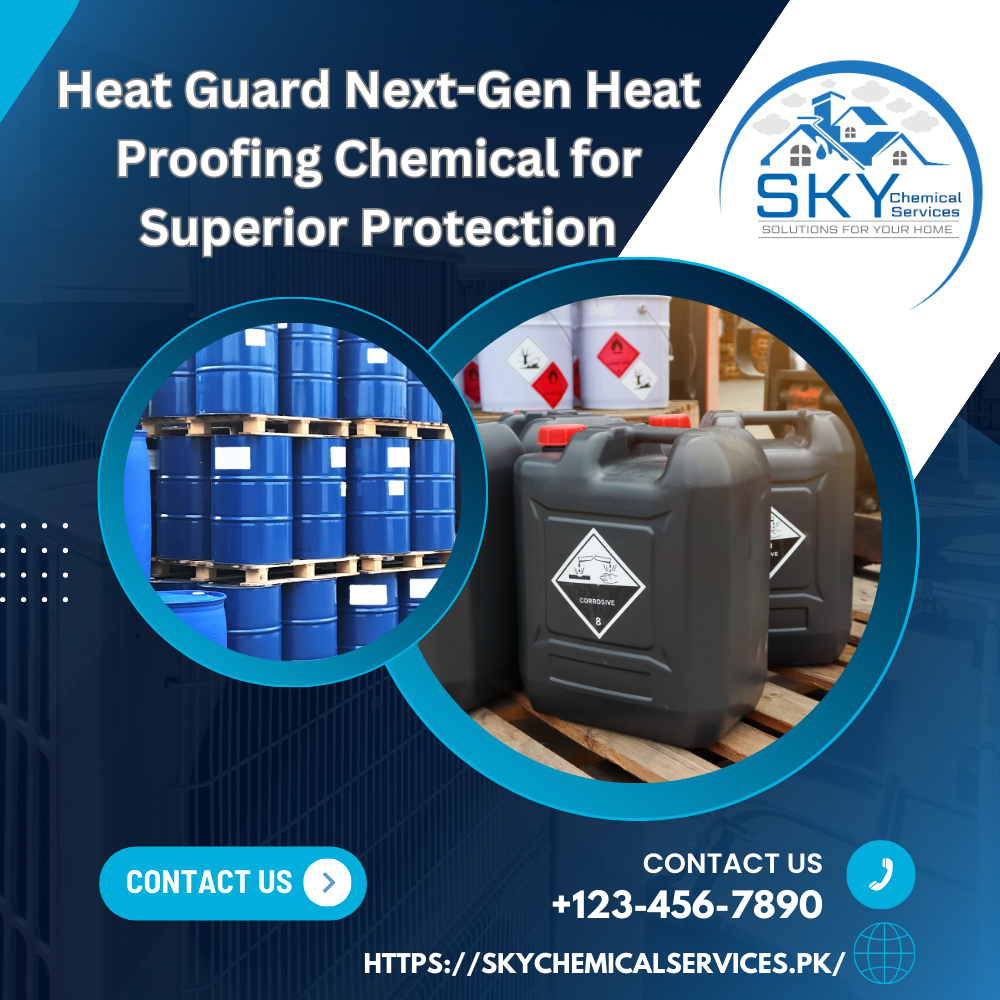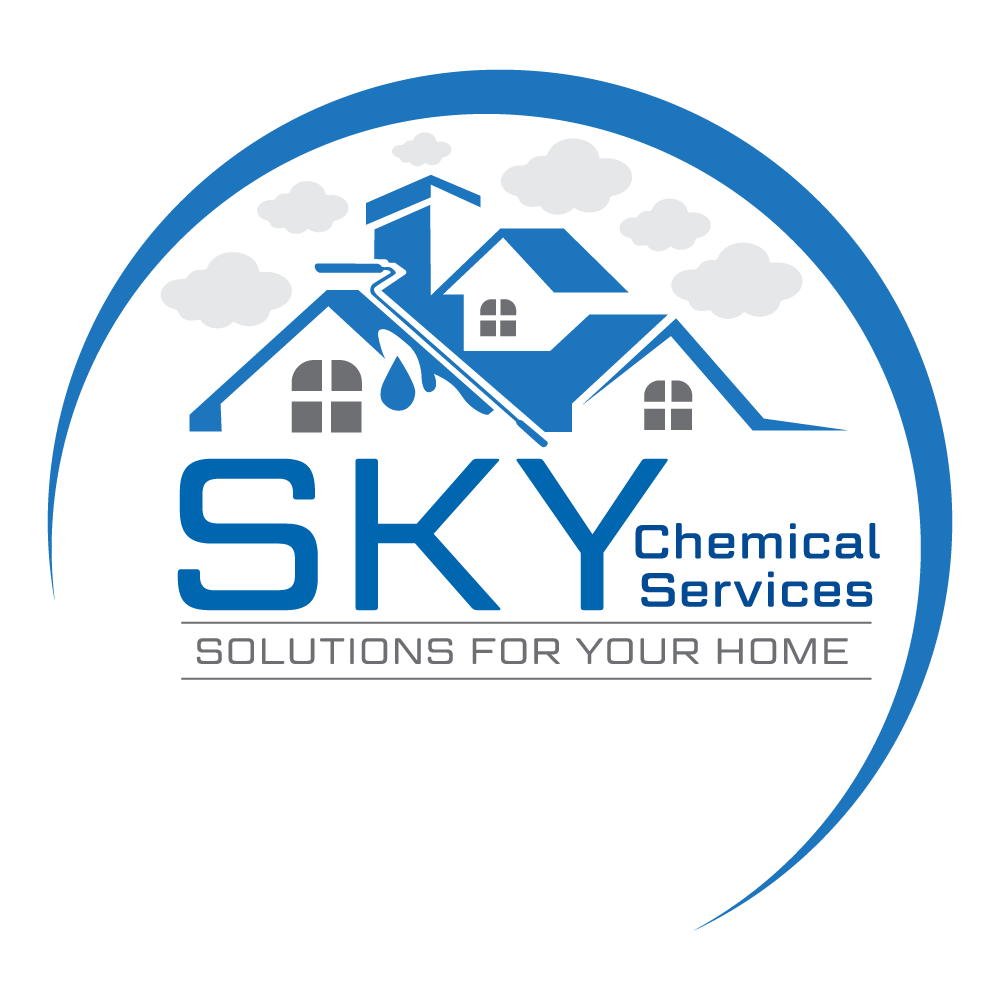In today’s fast-paced industrial landscape, managing extreme temperatures is a crucial challenge. Various heat proofing chemical available in the market are transforming the way industries handle high temperatures, ensuring safety, efficiency, and durability. From manufacturing plants to electronic circuits, heat-proofing chemicals provide an essential barrier against excessive heat exposure.
Discover the ultimate solution for thermal management with our advanced heat-proofing chemical formulations. These innovative solutions offer numerous advantages, making them a valuable investment for industries that require efficient thermal insulation and long-term protection.
Key Benefits of Heat Proofing Chemical
1. Enhanced Thermal Insulation
One of the primary benefits of heat-proofing chemicals is their ability to significantly reduce heat transfer. By forming an insulating layer, these formulations help maintain optimal temperature levels within structures and equipment, minimizing heat absorption.
-
Energy Efficiency – Heat-proofing chemicals decrease the reliance on energy-intensive cooling systems, leading to significant reductions in power consumption.
-
Extended Equipment Lifespan – Excessive heat can lead to material degradation and early wear and tear. Heat-proofing chemicals protect assets like ships, buildings, and machinery, ensuring they remain in optimal condition for longer.
-
Comfort and Productivity – In industrial and commercial environments, regulating temperature with heat-proofing solutions enhances the working conditions for employees, leading to better productivity.

Read More
How to Reduce Heat Loss in Your Homes?
Why Roof Heat Proofing is Important in Karachi?
2. Versatility Across Industries
Heat proofing chemical are not limited to a single application; they cater to a diverse range of industries and materials. These solutions can be applied to metal structures, concrete surfaces, electronic components, and more, making them a highly adaptable choice.
-
Construction & Infrastructure – Buildings and industrial facilities benefit from reduced heat penetration, lowering the need for cooling and air conditioning.
-
Manufacturing & Automotive – Machinery and vehicles are exposed to extreme temperatures. Heat-proofing chemicals prevent overheating, reducing the risk of mechanical failures.
-
Electronics & Data Centers – Sensitive electronic circuits and data centers require efficient thermal management to prevent overheating and system failures. Heat-resistant coatings provide an additional layer of protection.
3. Improved Safety & Fire Protection
Heat-resistant chemicals play a crucial role in maintaining surface temperatures, preventing fire hazards, and ensuring workplace safety. These solutions are especially useful in environments with high-temperature exposure, providing an extra layer of security.
-
Prevention of Fire-Related Accidents – Heat-proofing chemicals help prevent overheating, reducing the likelihood of fire outbreaks in industrial and commercial spaces.
-
Compliance with Safety Regulations – Many industries require strict adherence to thermal management standards. Using heat-proofing solutions helps businesses meet legal requirements and avoid penalties.
-
Worker Safety – A well-managed thermal environment reduces the risk of burns, equipment malfunctions, and other temperature-related accidents.
4. Environmental Sustainability
Heat-proofing chemicals contribute to eco-friendly practices by reducing energy consumption and lowering carbon emissions. Businesses aiming to integrate sustainability into their operations will find these chemicals to be an effective alternative to traditional cooling methods.
-
Reduced Carbon Footprint – By lowering the energy demand for air conditioning and cooling systems, these solutions help companies meet their sustainability goals.
-
Minimized Waste & Material Degradation – Heat protection extends the lifespan of materials, reducing waste and minimizing the need for replacements.
-
Support for Green Building Standards – Many heat-resistant coatings are designed to comply with environmental certifications, making them ideal for eco-conscious building projects.
A Holistic Approach to Thermal Management
Heat-proofing chemicals offer a comprehensive solution to combat extreme temperatures, ensuring insulation, versatility, safety, and sustainability. Whether used in industrial plants, commercial buildings, automobiles, or electronic devices, these coatings are an investment that yields long-term benefits.
By choosing the right heat-proofing solution, businesses can cut costs, improve safety, and prepare for temperature fluctuations that could otherwise cause operational disruptions.
At Sky Chemical Services, we provide premium heat-resistant coatings designed to protect galvanized steel, metal structures, and various industrial applications. Contact us today to learn more about how our advanced heat-proofing solutions can safeguard your assets and enhance efficiency!
Frequently Ask Questions
Q. Which chemical is heat resistant?
A. Several heat-resistant chemicals are used for thermal insulation, including silicone-based coatings, ceramic coatings, and polyurethane-based compounds. These materials provide excellent resistance to extreme temperatures.
Q. What is the cost of roof heat proofing chemical in Pakistan?
A. The cost of roof heat-proofing chemicals in Pakistan varies depending on the brand, type, and coverage area. Prices can differ between basic coatings, reflective paints, and high-performance insulation solutions.
Q. What is the most heat resistant chemical?
A. Ceramic-based coatings and silicone resins are among the most heat-resistant chemicals, capable of withstanding temperatures exceeding 1000°C. These are widely used in industrial and aerospace applications.
Q. How to make a roof heat proof in Pakistan?
A. To make a roof heat-proof in Pakistan, apply heat-resistant coatings, reflective paints, or thermal insulation sheets. Using white or light-colored surfaces also helps reflect sunlight and reduce heat absorption.
Q. What is the best solution for heat proofing a roof?
A. The best solution for heat proofing a roof includes applying ceramic coatings, polyurethane insulation, or reflective heat-resistant paints. These methods effectively reduce indoor temperatures and improve energy efficiency.
Q. How can I heat proof my house?
A. To heat-proof your house, use insulated roofing, heat-resistant coatings, UV-reflective paints, and proper ventilation. Planting trees and installing thermal insulation in walls and ceilings can also help regulate indoor temperatures.
